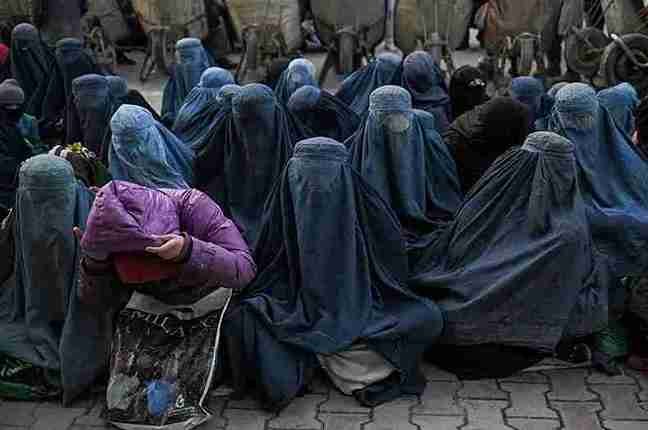In a significant move, ICC Prosecutor Karim Khan has filed applications for arrest warrants against two high-ranking Taliban officials: Supreme Leader Haibatullah Akhundzada and Supreme Court Chief Justice Abdul Hakim Haqqani.
The charges stem from allegations of crimes against humanity, specifically focusing on gender-based persecution, as outlined in the Rome Statute, which mandates that signatory states pursue accountability for international crimes.
Allegations of Gender-Based Persecution: The applications highlight the ongoing and severe persecution faced by Afghan women, girls, and the LGBTQI+ community under Taliban rule since their return to power in 2021.
The Taliban’s policies have systematically stripped women of their rights, including prohibiting them from working, accessing public spaces, and pursuing education beyond the age of 12.
International Legal Framework: Mr. Khan emphasized that the actions of the Taliban represent grave violations of fundamental rights, including physical autonomy, freedom of expression, and educational access, all of which are protected under international law.
First of Its Kind: This marks a historic moment as it is the first time the ICC has sought arrest warrants related to crimes committed in Afghanistan. The prosecutor noted that the applications are backed by a wealth of evidence, including expert testimonies, forensic analyses, and various decrees issued by the Taliban authorities.
Comprehensive Investigations: The ICC’s Afghanistan team, led by Deputy Prosecutor Nazhat Shameem Khan and Special Adviser on Gender and Discriminatory Crimes Lisa Davis, has been instrumental in gathering evidence and investigating these serious allegations.
Broader Context of Violence: Mr. Khan pointed out that the Taliban’s oppressive measures are part of a broader pattern of violence against perceived opposition, which includes murder, torture, sexual violence, and enforced disappearances. He stressed that the Taliban’s interpretation of Sharia law cannot be invoked to justify these human rights violations.
Recognition of Victims’ Courage: In his statement, Mr. Khan acknowledged the bravery and resilience of Afghan victims and witnesses who have come forward to support the investigations. He reaffirmed the ICC’s commitment to ensuring that their suffering is not overlooked and that justice is pursued impartially.
Support from Civil Society: The prosecutor expressed gratitude to Afghan civil society and international partners for their ongoing support in these efforts.
Next Steps in the Legal Process
The ICC’s Pre-Trial Chamber will now review the applications to determine if there are reasonable grounds to believe that the accused individuals committed the alleged crimes. Should the judges approve the warrants, the ICC will collaborate with the Registrar to facilitate the arrest of the individuals.
Mr. Khan also indicated that additional applications targeting other senior Taliban leaders are in the pipeline, emphasizing that Afghan victims and survivors have endured injustice for far too long.
This development underscores the ICC’s commitment to addressing impunity for serious international crimes and highlights the urgent need for accountability in Afghanistan amidst ongoingvhuman rights violations.








